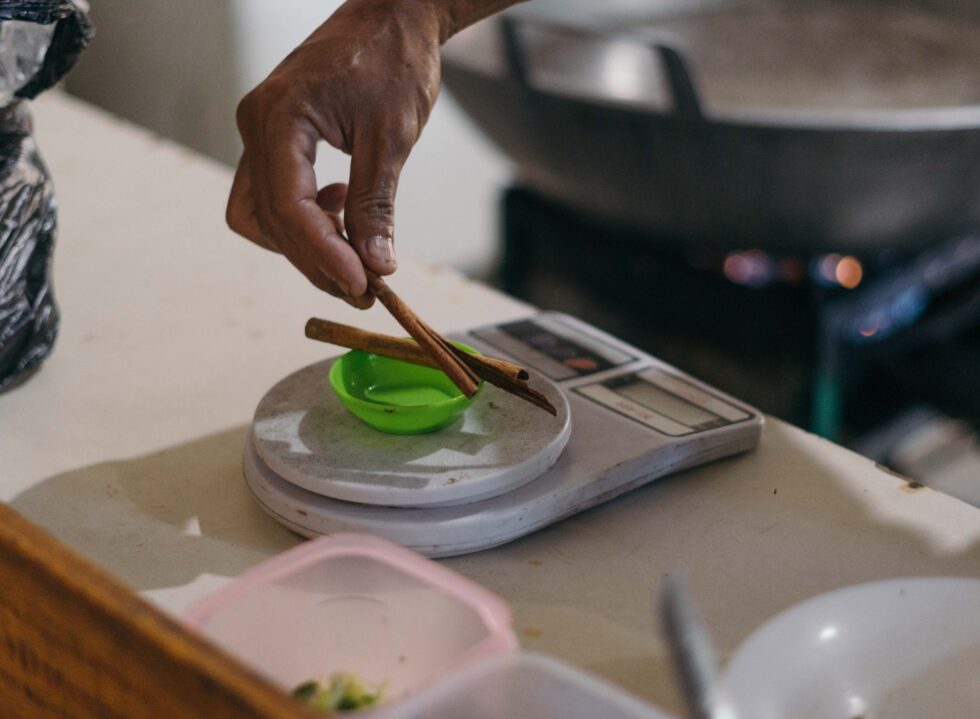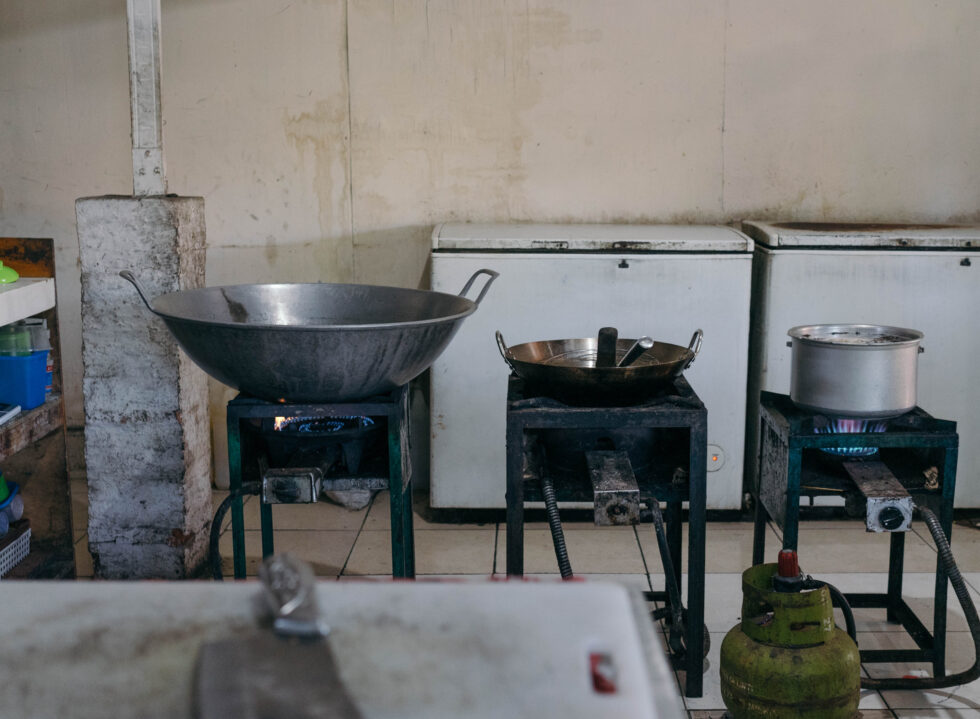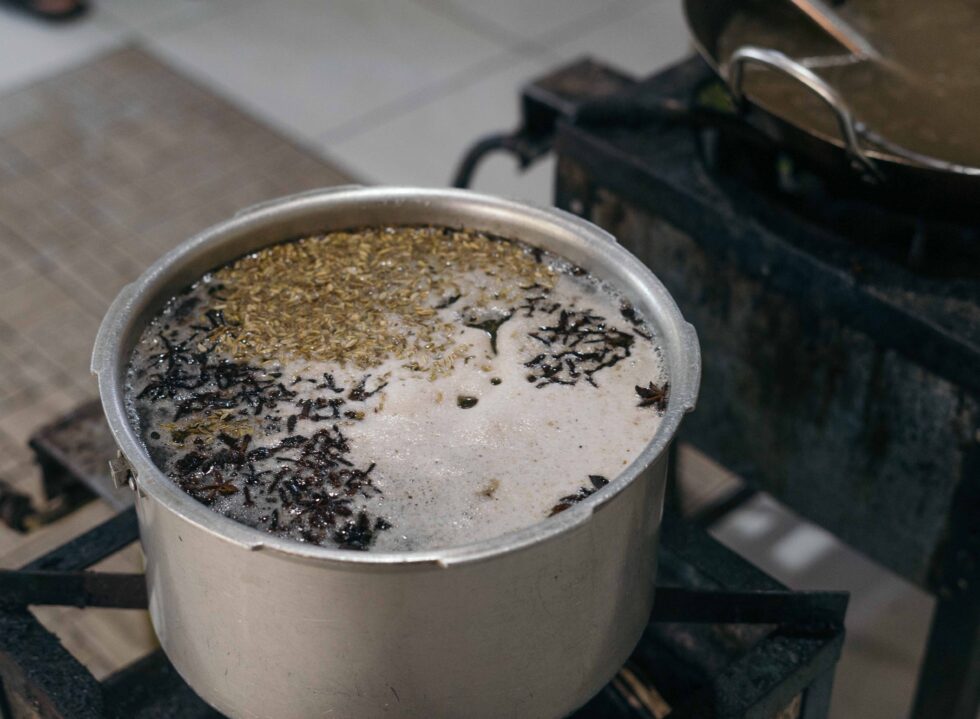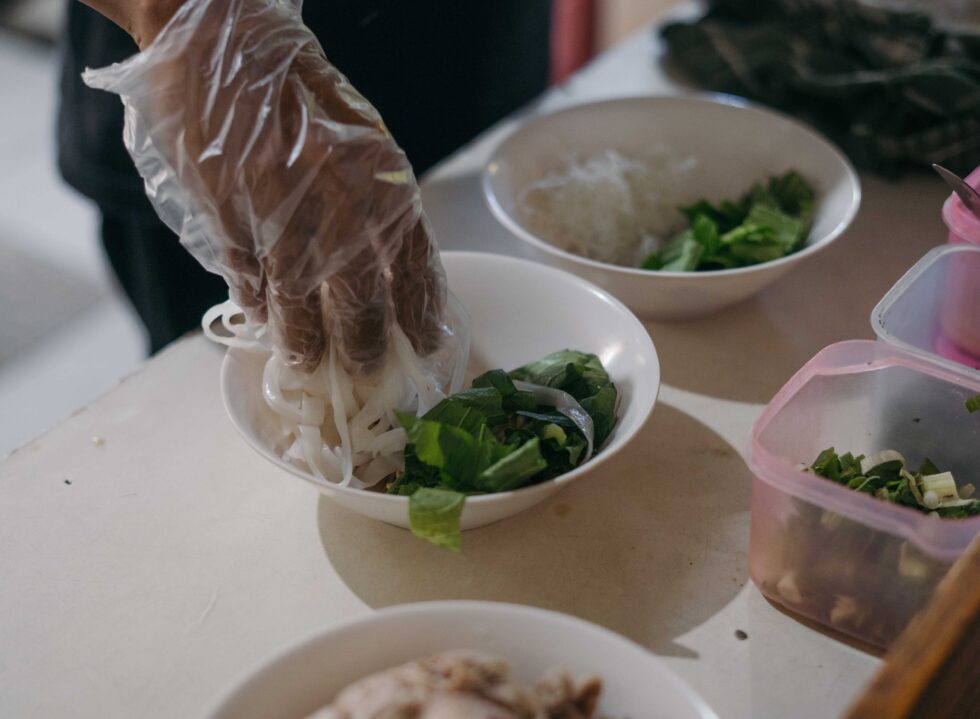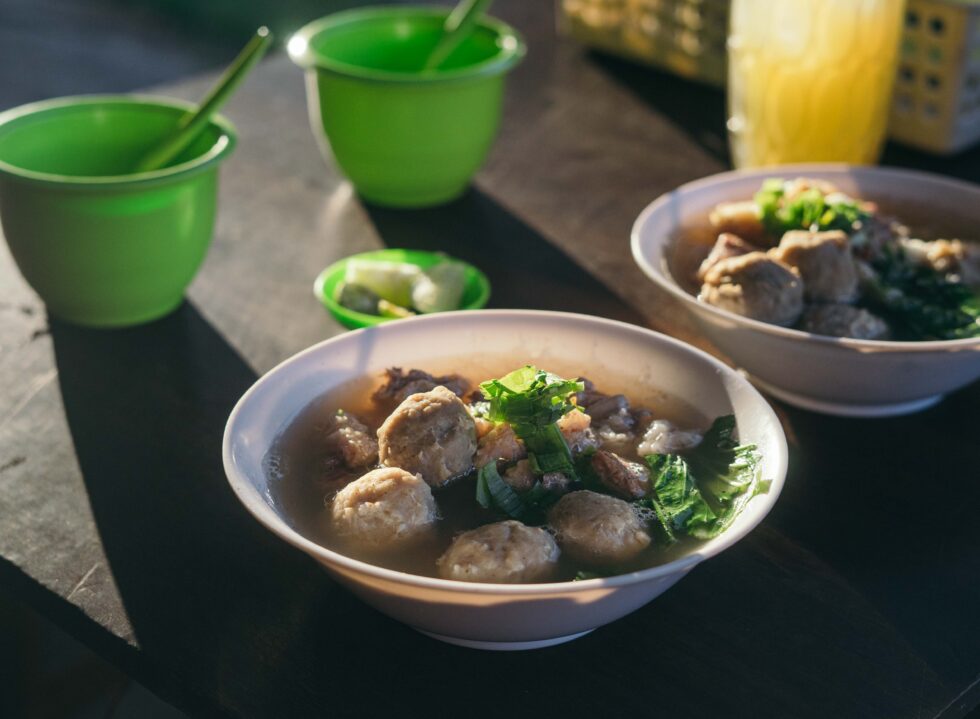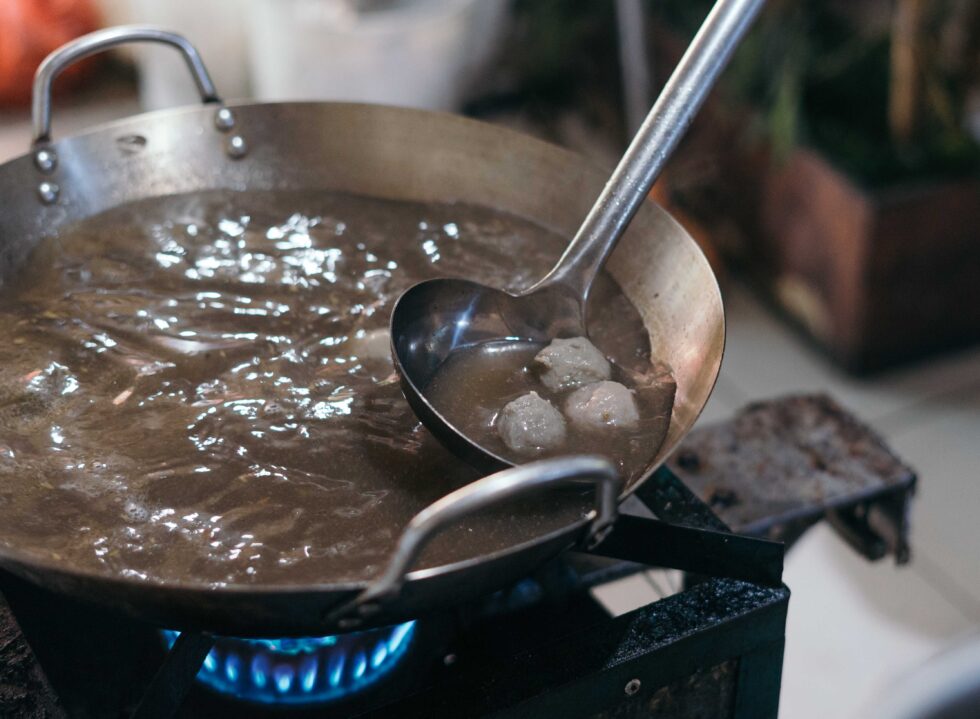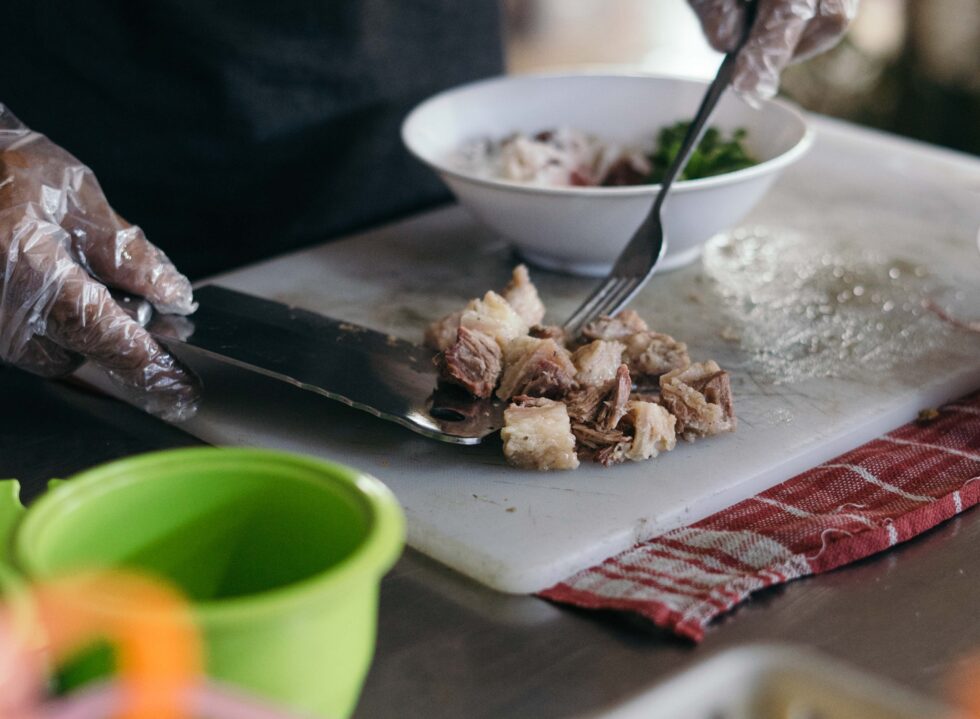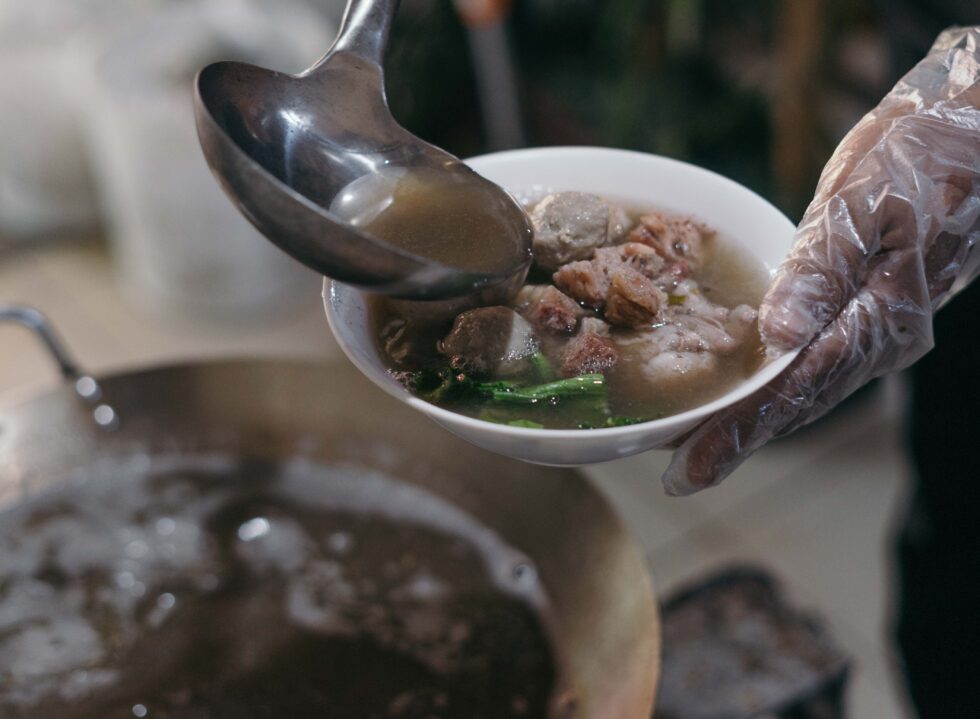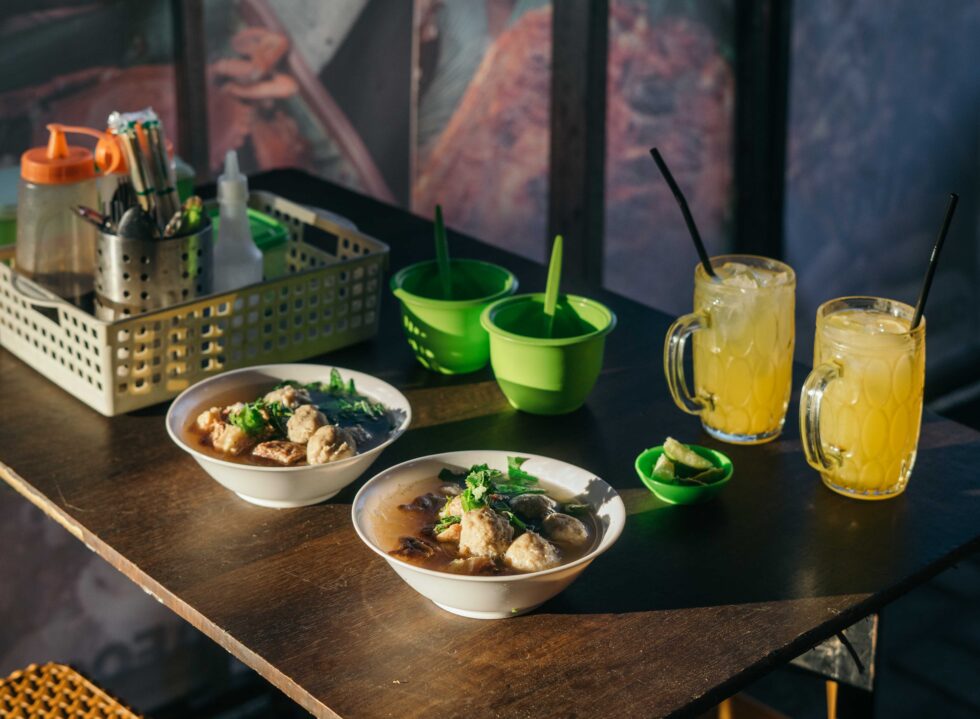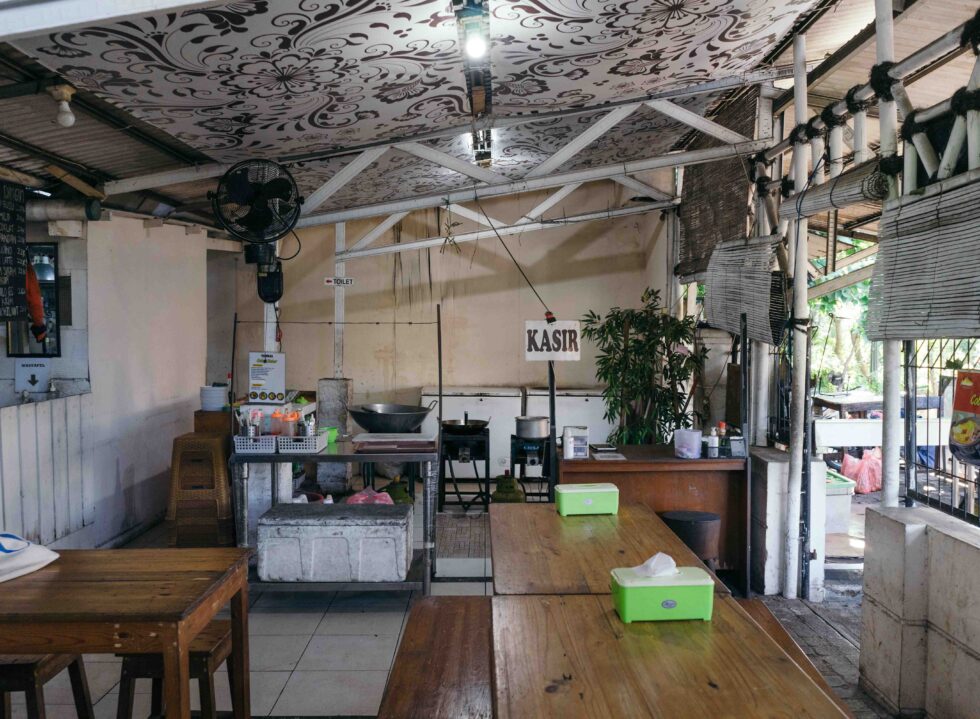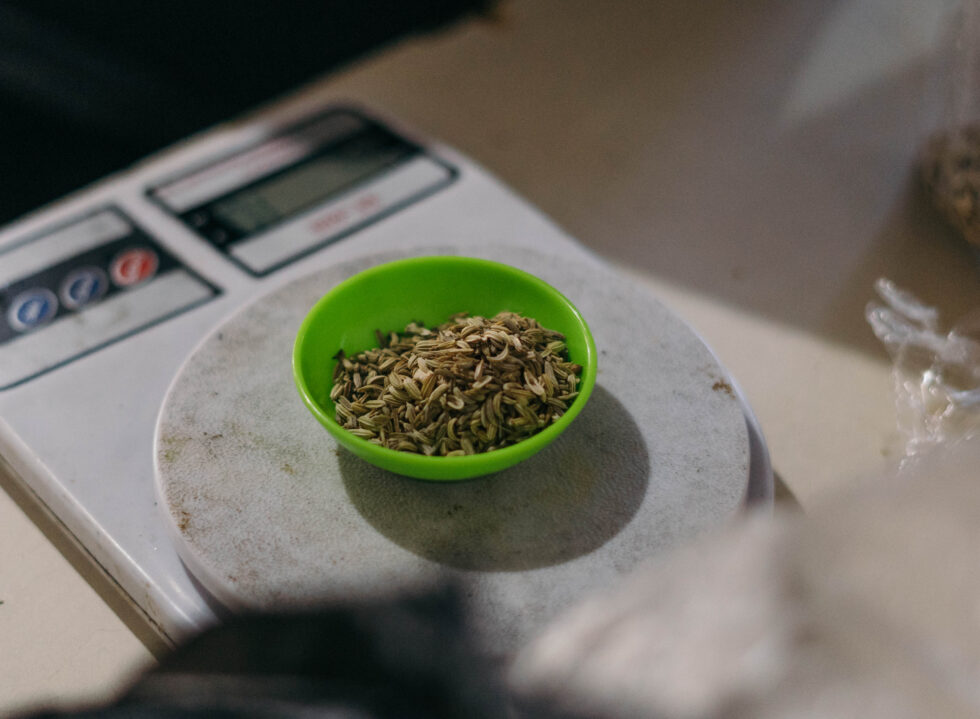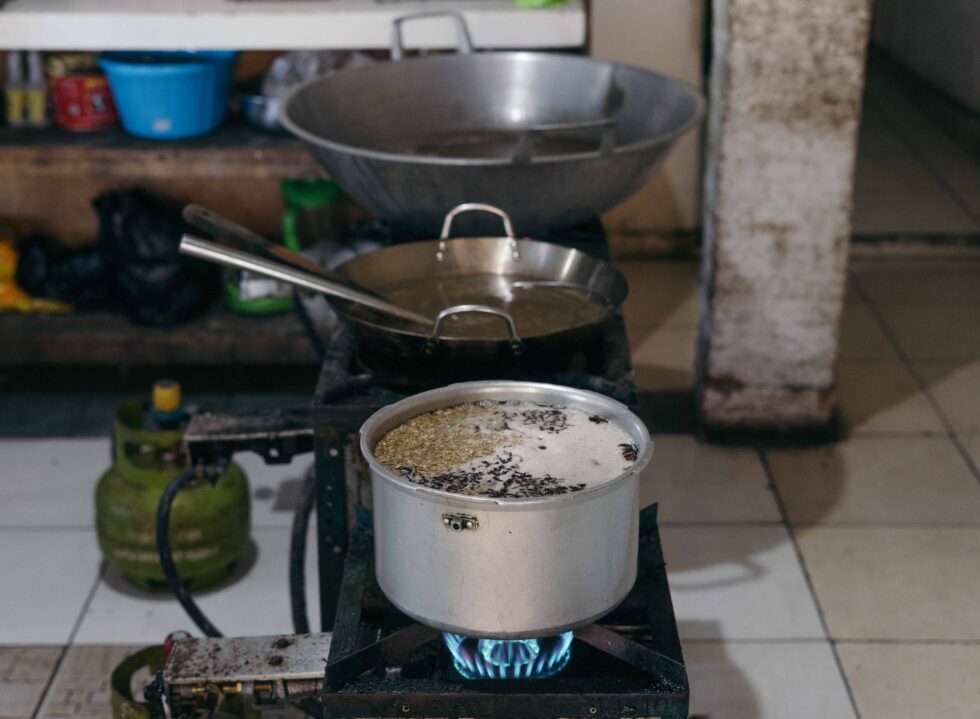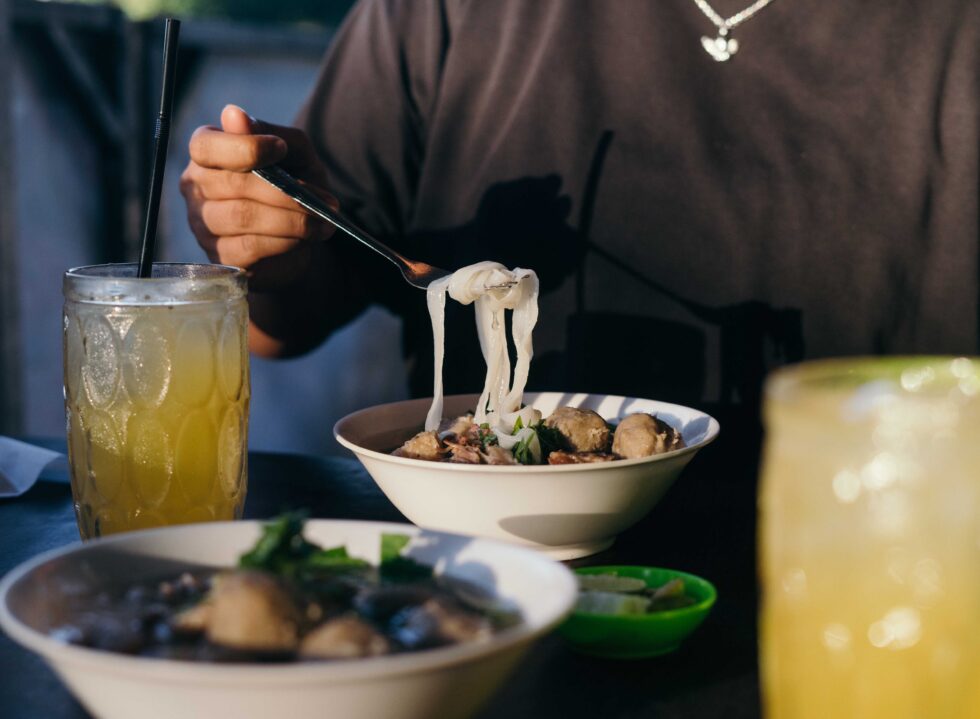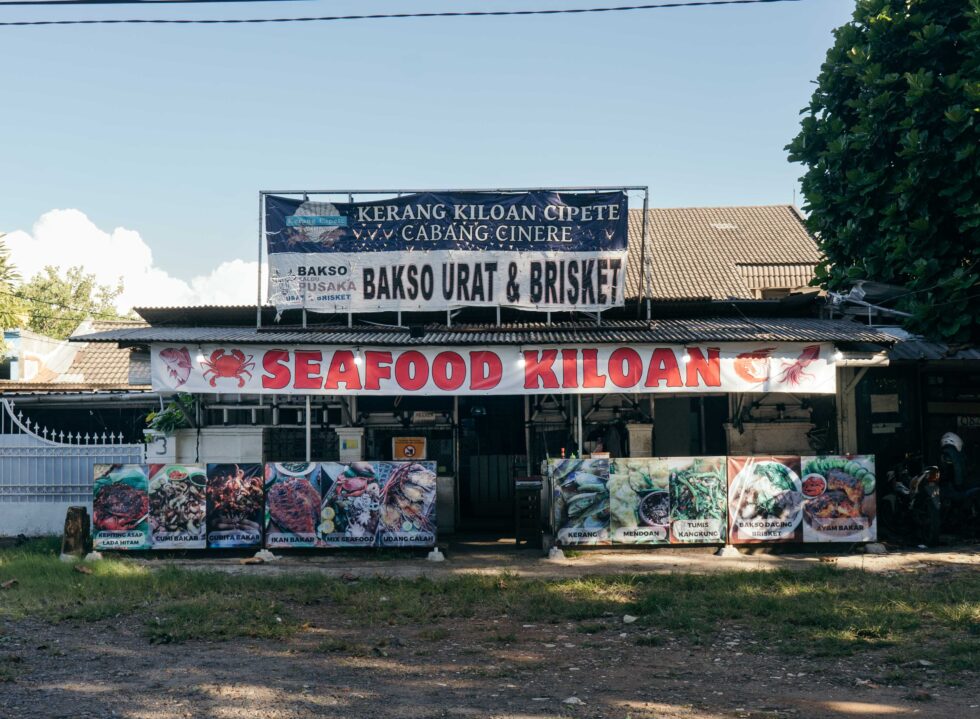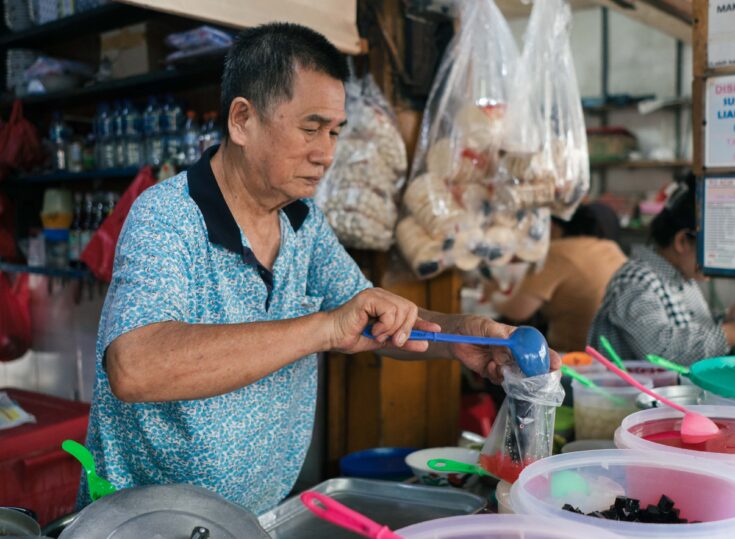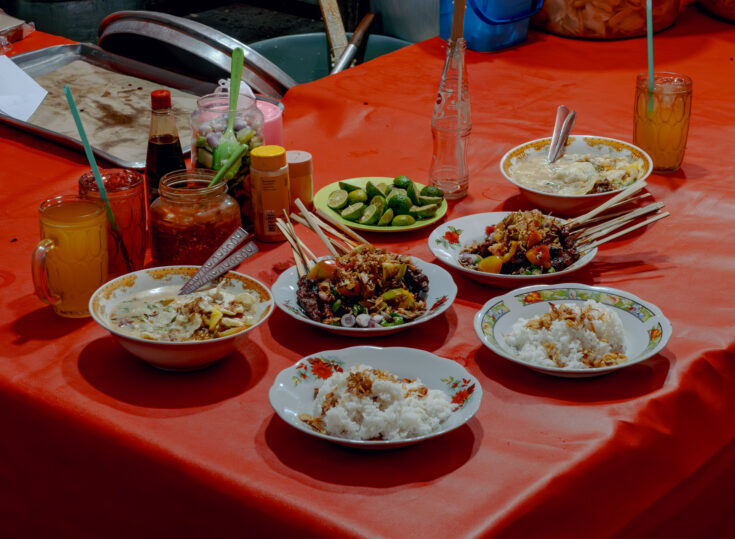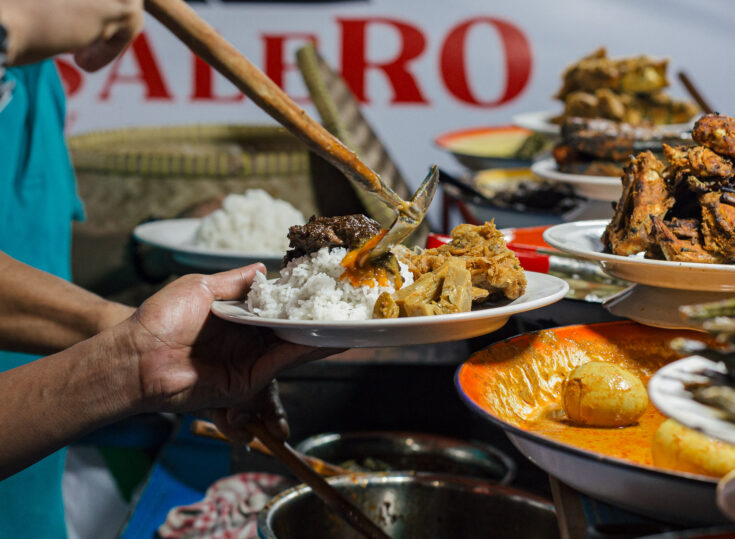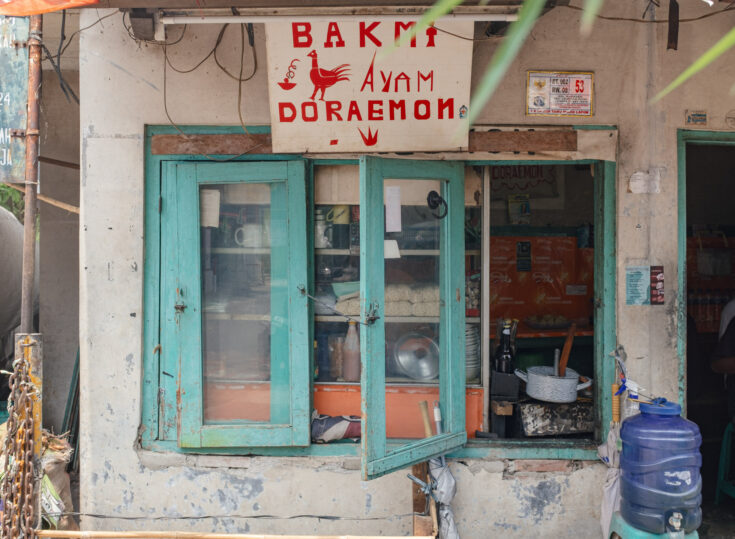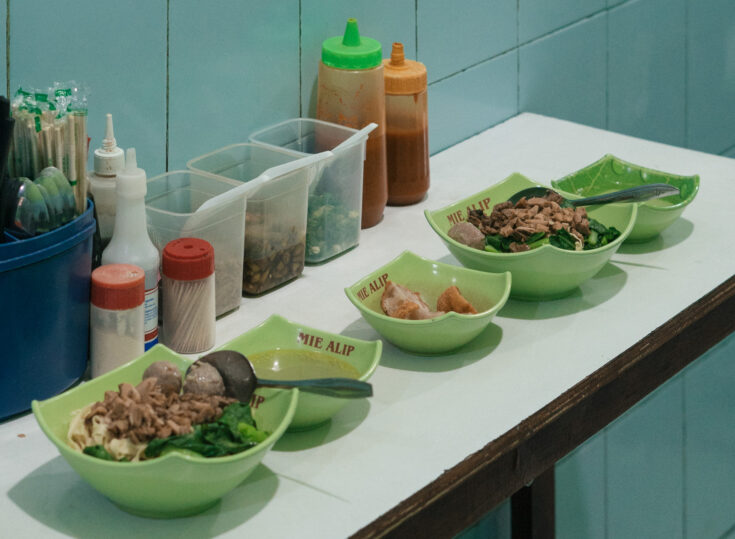Like a well-kept secret, Bakso Kaldu Pusaka in Pangkalan Jati—which borders the cities of South Jakarta and Depok on either side—easily escapes the notice of commuters traversing through the area. Its gravelled parking lot is covered in patches of grass and, sharing a communal space with a seafood restaurant, the banner that marks its presence is in tough competition with pictures of crabs, octopuses and shrimps that line the joint’s simple façade.
But all it takes is to step in and catch the telltale whiff of anise seeds and star anise, cinnamon as well as cloves to discover that something out of the ordinary is (literally) brewing inside the bakso stall: a one-year-old ‘mother broth’, richly flavoured with the aforementioned spices as well as chicken, beef and goat meat.
Inspired by the 50-year-old beef soup of Wattana Panich in Thailand, Bakso Kaldu Pusaka (a name that translates to heirloom broth) similarly implements a perpetual stew technique to keep its broth in rotation since January last year. Every night after the stall closes up for the evening, founder Adiv Hazazi would take the remaining dark-coloured soup from its massive wok and then freeze it. The next day when the place opens, he would reverse the routine and reheat the stock, topping it up when necessary.
To balance the richness of this broth, an additional one is made fresh daily using the same compilation of spices alongside beef bones in a separate pot, creating a clear soup that some might liken to the one found in a bowl of pho. The two broths are then combined together in a smaller work where the soup continually simmers, ready to be served.
A bowl of the stall’s special—each one further flavoured with shallots fried in beef fat—brims with housemade bakso, thick beef slices, tender chunks of brisket and an option between thin or flat rice noodles. A bite reveals taste notes that are more subtle than what one might expect, but the hidden complexity quickly shines upon adding a dash of salt and a spoon (or a few spoonfuls, depending on preference) of the red chilli and green chilli sambals.
It’s natural to have initial reservations about Bakso Kaldu Pusaka—the idea of a one-year-old broth doesn’t necessarily pique the appetite, after all. But it’s also clear that people’s curiosity for its distinct style of bakso can easily overcome the notion, with the stall unassumingly becoming a lively hub for the area. It sees unplanned yet pleasant meet-ups between neighbours, young couples enjoying a simple date as well as weary office workers enjoying dinner with friends before continuing on their way home. Even in the unlikeliest of places, a community can be formed around the promise of good food.
Throughout the month of Ramadan, Bakso Kaldu Pusaka is open from 4 until 11 pm.
